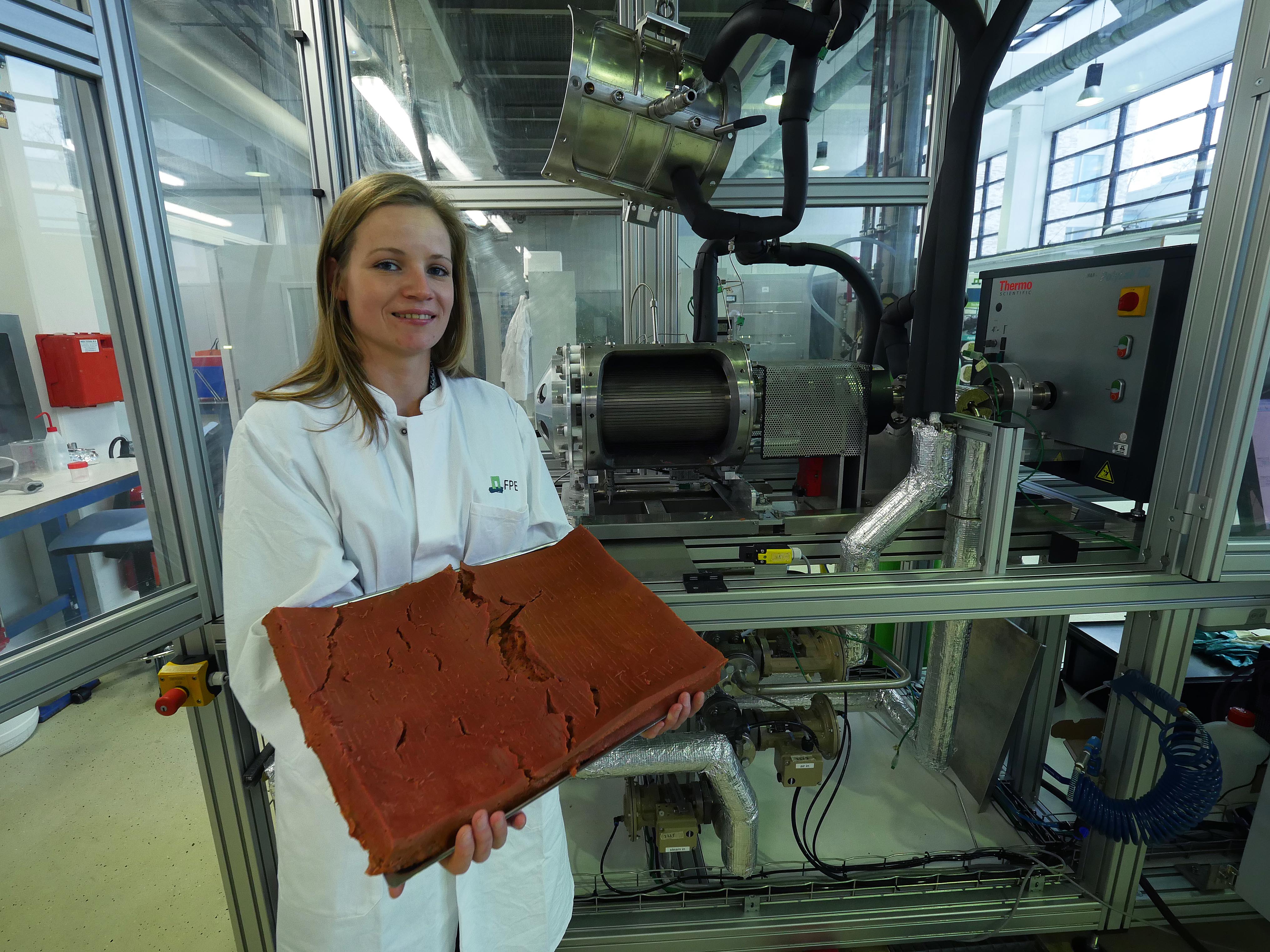The innovative shear-cell technology, developed by Wageningen University researchers, transforms vegetable protein - be it soy, wheat, pea, rapeseed or corn - into a layered, fibrous structure that closely matches the appearance and texture of steak.
FoodNavigator first reported on the ingredient in 2015 when the researchers teamed up with Dutch food manufacturer The Vegetarian Butcher. They have since added industry giants Unilever, Givaudan, Ingredion, French agri-food giant Avril to their list of partners and the first products are expected to hit the shelves in 2019.
The processing methods, which are mild and have a smaller carbon footprint than conventional methods such as extrusion, have only been available at lab- and pilot- scale, and the Plant Meat Matters project is the first to scale it up.
Although meat analogues abound, they haven’t yet overtaken sales of meat in volume terms.
Euromonitor data shows that sales of meat substitutes is enjoying double-digit growth in Germany, outpacing the single-digit growth of processed meat. The 2015-2020 CAGR for meat substitute volume sales in Germany is expected to be 12% whereas it will be -1% for processed meat volume sales Globally, sales of meat substitutes increased from 163,000 tonnes in 2015 to 183,000 tonnes in 2016.
According to Niko Koffeman, marketing and communications manager at The Vegetarian Butcher, plant-based alternatives need to be “meat-identical” if they are to achieve this and spark a food revolution.
Powerful partners
Plant Meat Matters aims to make the technology available not only to industry but also chefs and consumers cooking in the home.
According to Professor Atze Jan van der Goot, professor of protein structuring and sustainability at Wageningen's laboratory of food process engineering who leads the research team, the strength of the partnership lies in its diversity. “We are proud to have such a broad consortium that covers the full production chain. It makes this project very powerful, in our opinion,” he told FoodNavigator.

Nutrition & Nature and The Vegetarian Butcher will use the technology to develop the next generation meat substitutes.
Unilever, which has already teamed up with The Vegetarian Butcher to co-brand a product through its Dutch Unox brand, is interested in combining the protein with its current product portfolio.
Meanwhile Avril and Ingredion are interested in supplying protein sources such as rapeseed or corn and Swiss flavour house Givaudan will provide knowledge and technology to flavour the products.
Flavio Garofalo, Givaudan’s global business development manager for protein said flavour played a critical role in making the plant-based meat taste like the real thing, ensuring it is a competitive product.
“This is a true innovation to develop a sustainable product that can compete with real fresh meat, opening up new markets for vegetarian products appealing to meat lovers and flexitarians alike.”
Meyn Food Processing is developing the actual equipment for producing the meat analogue.
Common goals
Van der Goot sees the ingredient as complimentary to other plant-based meat alternatives such as Impossible Foods vegetable heme-bleeding burger or Mark Post’s lab-grown meat.
“We certainly don’t see those groups as rivals. Actually, we have friendly contacts. One of my students recently did an internship at Impossible Foods. We all share the ambition to develop more sustainable food product but we all have our own approaches.”
The technology has not been patented so far and the Wageningen researchers publish most (but not all) of their work. “That gives companies a head start compared to [those] that do not participate in the consortium. [But] the reason why we publish is because we aim for the technology to be used as a route to contribute to a more sustainable diet world-wide. The companies participating in the consortium will benefit first from the results.”
Next step: Say cheese
Although the project still has several years to go, van der Goot already has his sights set on the next challenge – vegan cheese – and the technical know-how gleaned during Plant Meat Matters will be used to develop solutions for this.
It’s particularly difficult to mimic the melting capacity of cheese as well as the way it breaks up in the mouth during chewing, van der Goot added.
